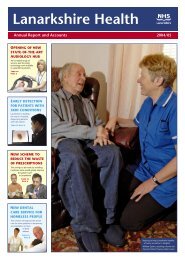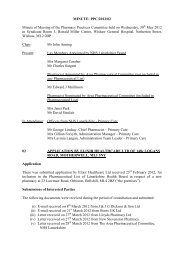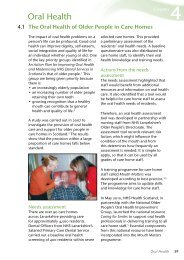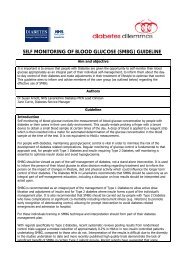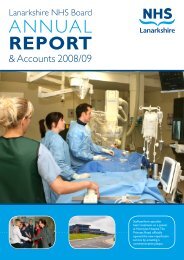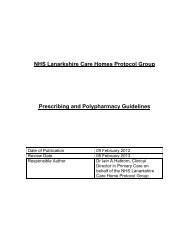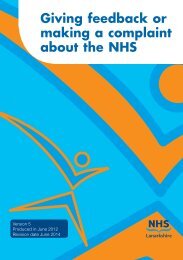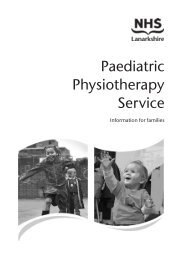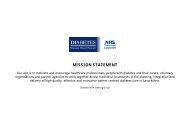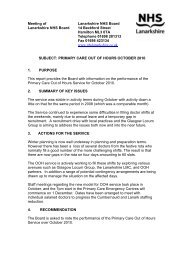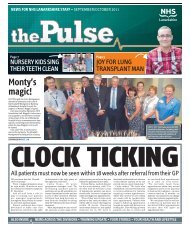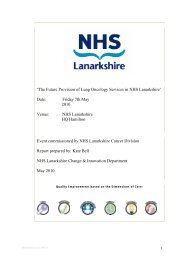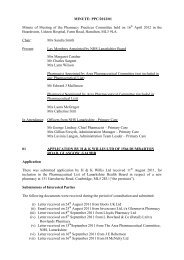Palliative Care Guidelines - NHS Lanarkshire
Palliative Care Guidelines - NHS Lanarkshire
Palliative Care Guidelines - NHS Lanarkshire
- No tags were found...
You also want an ePaper? Increase the reach of your titles
YUMPU automatically turns print PDFs into web optimized ePapers that Google loves.
<strong>Palliative</strong> <strong>Care</strong> <strong>Guidelines</strong>: DeliriumMedication (cont):If more sedation is desirable and appropriate:• Add or increase benzodiazepine (midazolam SC infusion 10-30mg/ 24hours in a syringe driver /pump or diazepam PR 5-10mg, 6-8 hourly).• Change haloperidol to levomepromazine SC 12.5-25mg, once or twice daily by injection or as asubcutaneous infusion in a syringe driver/pump.Non-drug• Explain cause and likely course to patient, relatives and carers.• Address anxiety; patients with delirium are often very frightened.• Quiet area or side room; limit staff changes.• Adequate lighting, minimise noise, provide a clock the patient can see.• Gentle repeated reorientation and avoid confronting deficits.• Try to maintain normal sleep-wake cycle.• Patients who recover recall their experiences; explain the organic cause of their behaviour andsymptoms.Practice points• Attention to the environment is essential.• Opioid toxicity is a common cause of delirium, particularly in the elderly.• Corticosteroids can cause florid delirium.• Hypoactive delirium is frequently missed or misdiagnosed.• Atypical antipsychotics offer no advantage over haloperidol.• Adults with Incapacity Act covers the medical treatment of patients with cognitive impairment.See: Adults with Incapacity Act on website.• In the acute situation, emergency treatment can be given without an Incapacity certificate if thisis in the patient’s best interest.Patient / carer advice points• Encourage the patient to keep taking oral fluids if able.• The presence of a close relative or friend can help reassure the patient.ResourcesProfessionalBritish Geriatrics Society <strong>Guidelines</strong>: http://www.bgs.org.ukPatientMental Health Foundation: http://www.mentalhealth.org.ukKey references1. Young J, Inouye SK. Delirium in Older People. BMJ 2007; 334:842-62. Siddiqi N, House A. Delirium: an update on diagnosis, treatment and prevention. Clinical Medicine 2006; 6:540-543Further reading: http://www.palliativecareguidelines.scot.nhs.uk2 Issue date: January 2009 Review date: March 2012 © <strong>NHS</strong> Lothian



